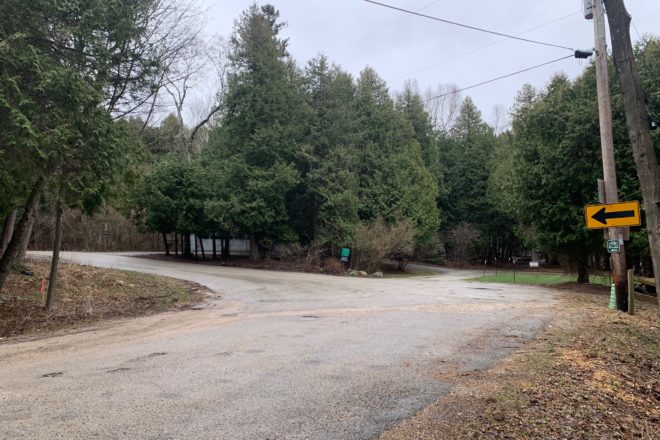Gibraltar Asking Taxpayers for $400,000 for Roads
- Share
- Tweet
- Pin
- Share

The additional levy would replace the current traffic utility fee ordinance
The Town of Gibraltar wants to eliminate its year-old traffic utility fee in favor of increasing the property tax levy by $400,000, the same amount the fee would have raised annually to maintain and repair roads.
The plan is included in the proposed 2024 budget the town will present to residents during a public hearing on Nov. 20, at 5:30 pm, at the Gibraltar Town Center, 4097 Main St. in Fish Creek.
Immediately following that hearing, electors will be asked to consider a resolution that allows the town board to exceed the state allowable levy limit, after adjustments, by 13.56% (a dollar increase of $400,000). The electors will then be asked to approve the final 2024 town levy in the amount of $3,349,502.
To help prepare residents, Travis Thyssen, town administrator, will hold two public information sessions on Nov. 14 at 10 am and 4 pm at the Gibraltar Town Center to answer questions about the proposed budget, the upcoming vote, recent property revaluations or any other town business residents want to discuss.
Why Eliminate the Traffic Utility Fee?
The town adopted its traffic utility fee ordinance on June 23, 2022. The ordinance treated the town’s 58 miles of road as a utility and then, based upon a formula and fee schedule, charged town residents, businesses, nonprofits and other public organizations for usage. The plan would raise $400,000 annually, and locked in those dollars for road repair and reconstruction-related expenses.
That same month, however, Outagamie County Circuit Court Judge Mark McGinnis struck down the Town of Buchanan’s transportation utility fee, holding that the fee violated the levy limits the state imposes on counties and municipalities.
Wisconsin Property Taxpayers, Inc. had filed that lawsuit. The Supreme Court of Wisconsin (SCOWIS) took up the town’s appeal of the Circuit Court decision. On June 29 of this year, SCOWIS upheld the Circuit Court’s ruling, and repealed the Town of Buchanan’s transportation utility fee.
Thyssen said the legal advice Gibraltar has sought and received indicate its traffic utility fee remains legal because of how it’s structured. However, that SCOWIS decision in June “brought this to the attention of [town] board supervisors,” who don’t know what the future holds for traffic utilities across the state.
“Their thought is, let’s take this and put it on the levy and be done with it,” Thyssen said.
The levy-cap override, if approved, would set the levy at the higher level into perpetuity and every year, Thyssen said, they’d use that specifically for roads, creating “a robust roads program.”
State statute requires town electors to approve a town’s plan to override a levy cap. Those state-imposed caps on municipalities are based upon net new construction. Gibraltar’s net new construction for 2023, according to the Wisconsin Department of Revenue, is 1.30%. That would enable the town to increase the levy only by an additional $21,333.
The state’s levy cap on municipalities and counties has some exceptions, primarily debt service. Municipalities are allowed to levy property owners above the general property tax to make payments on debt. Gibraltar’s current debt levy is $1,152,782, with an increase of $143,276 added to that for 2024. The town’s total debt load is around $12 million, Thyssen said, with some of that debt falling off in 2024. The town is allowed by its own ordinance to take on up to about $23 million in debt, but that’s not the goal, Thyssen said.
“Right now, our goal is to pay that [debt] down,” he said.
Neither do many municipalities appreciate the borrow-and-spend strategy that, by default, the state levy limits encourage.
“It’s the only tool that’s been in the chest for municipalities,” Thyssen said.
Maybe that was more attractive, or at least possible, when interest rates weren’t so high.
“Now it’s up to 6.5-7% to borrow,” Thyssen said. “Now it doesn’t pay.”
Gibraltar’s total expenditures in the proposed 2024 budget would increase by 12.52%, or $498,572, bringing proposed 2024 expenditures – considered the town’s budget – to $4,481,562. However, the vast majority of that increase is in the public works budget for the additional $400,000, if approved. If it weren’t for that, Thyssen said the budget and levy would likely have decreased – despite double-digit increases for almost all goods and services the town purchases.
If town electors approve the levy increase Nov. 20, Thyssen said the town board would rescind the traffic utility fee ordinance. If the levy increase is voted down, “the board can still keep it in place; we’re not into borrowing right now.”
If the levy is approved, Thyssen said the board will also consider a resolution that says the additional levy money can’t be spent ton anything but roads – but that wouldn’t come until the board’s December meeting, after the Nov. 20 vote.
“Everything has to fall into place first,” he said.



